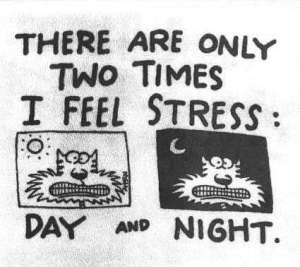Statistics on Pastors’ Emotional Health, Family, and Morality 
It’s particularly disturbing to see how much pastors are struggling with emotional pain, family problems, loving well, and moral failures:
70% say they have a lower self-esteem now than when they entered ministry
70% constantly fight depression
50% feel so discouraged that they would leave their ministry if they could, but can’t find another job
80% believe their pastoral ministry has negatively affected their families and 33% said it was an outright hazard
80% of ministry spouses feel left out and unappreciated in their church
77% feel they do not have a good marriage
41% display anger problems in marriage (reported by the spouse)
38% are divorced or divorcing
50% admit to using pornography and 37% report inappropriate sexual behavior with someone in the church
Statistics on Pastors’ Lack of Soul Care and Training
But ministry stress alone does not explain why pastors burnout emotionally or blow out morally. Other statistics suggest that many pastors struggle with “professionalizing” their spiritual lives and failing to care for their own souls under God:
70% do not have someone they consider a close friend
50% do not meet regularly with an accountability person or group
72% only study the Bible when preparing for sermons or lessons
21% spend less than 15 minutes a day in prayer — the average is 39 minutes per day
16% are “very satisfied” with their prayer life, 47% are “somewhat satisfied”, and 37% are either “somewhat dissatisfied” or “very dissatisfied” (spending more time in quiet prayer or listening to God versus making requests was correlated with higher satisfaction)
44% of pastors do not take a regular day off
31% do not exercise at all, while 37% exercise at least three or four days a week as recommended
90% say they have not received adequate training to meet the demands of ministry
85% have never taken a Sabbatical
The stats speak for themselves. We can either embrace the reality in our own life or curse the reality. Here are 4 tips to emotional health for Spiritual Leaders.
- SLOW DOWN for SABBATH – The core issue is not whether you are working 60-70 hours/week. The issue is the Sabbath is being broken and disrespected. Sabbath keeping is not working around the home as opposed to working at church. Sabbath means stopping to rest! It is also a time to contemplate God’s leading and working in you and through you.
- PAY ATTENTION to YOUR TRIGGERS – Robert Hogan, Industrial Psychologist states that two-thirds of leaders will be fired, demoted, or generally fail. The reason is that they are not paying attention to the hidden triggers that lay outside of their awareness. There are certain dysfunctional tendencies that manifest themselves when stress builds in our life. Healthy leaders are aware of their short-coming and know how to manage them when they start to surface. Manage them well, everyone around you will be glad that you did!
 LEAD OUT of YOUR MARRIAGE – Contemporary expectations for marriage of Christian leaders go something like this: “Be sure your marriage and family are strong/stable/solid so that you can build your church.” This is different from leading out of the fullness of life and joy in your marriage that it spills over over into other people’s lives as well. Lead from the context of your marriage vows meaning; if you are married you cannot lead like you are single! The health of your church is related to the health of your marriage!
LEAD OUT of YOUR MARRIAGE – Contemporary expectations for marriage of Christian leaders go something like this: “Be sure your marriage and family are strong/stable/solid so that you can build your church.” This is different from leading out of the fullness of life and joy in your marriage that it spills over over into other people’s lives as well. Lead from the context of your marriage vows meaning; if you are married you cannot lead like you are single! The health of your church is related to the health of your marriage!- EMBRACE LIMITS – God does not give you the talents of leaders you may admire. So don’t act like you do – be original and true to yourself just the way God made you! Be honest with your inner-self. Be careful for the hidden roots of shame and failure because you are not like others or are performing according to others expectations.
Leave a comment. What would you add to this list?




